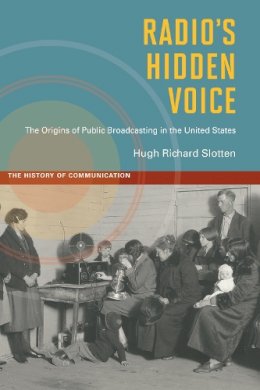
Radio´s Hidden Voice: The Origins of Public Broadcasting in the United States
Hugh Richard Slotten
Since the 1960s, the existence of a largely noncommercial public broadcasting system has become a familiar feature of American cultural and social life. Most histories of broadcasting, however, overlook public radio's early development during the 1920s and 1930s by focusing on the mainstream, hegemonic practices of large commercial stations connected to networks. This focus on the development of the "American System" of commercial broadcasting as a master narrative has obscured the historical importance of alternative means of radio broadcasting and their complex interaction with dominant trends.
Employing extensive research from archives across the United States, Hugh Richard Slotten examines the ... Read more
Radio stations operated by institutions of higher education were especially significant because they helped pioneer the idea and practice of broadcasting in the United States. Faculty members in physics, electrical engineering, and other technical fields possessed the fundamental scientific knowledge and practical engineering innovation necessary for radio's propagation. Further, the established traditions of public service at universities, especially land-grant colleges in the Midwest, provided a robust framework for offering a publicly available, noncommercial alternative to the emerging commercial broadcast system.
Show LessProduct Details
About Hugh Richard Slotten
Reviews for Radio´s Hidden Voice: The Origins of Public Broadcasting in the United States
Choice "This is a masterful work. It is ... Read more
